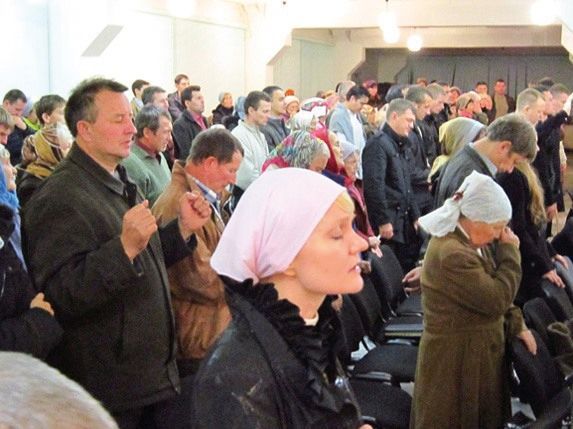THE FIRES OF ANTI-CHRISTIAN PERSECUTION rage on around the world. Through most of the Middle East, and in large parts of Africa and Asia, our brothers and sisters continue to suffer discrimination, ill-treatment and violence because of their love for Christ. Research has estimated that around 200 million Christians – about 10 per cent of the total number – are disadvantaged, harassed or actively oppressed for their faith.
Every week seems to bring its share of tragic and heart-breaking stories. Here are examples: in Nigeria, scores of Christian girls are abducted by a militant Islamist group, which threatens to sell them as slaves. In Pakistan, a Christian child is brutally gang-raped by four Muslim men, and her father is kidnapped to deter him from pressing charges. In North Korea, the Communist government rounds up Christian converts, accusing them of helping a missionary to plant churches; they face the death penalty. And in Libya, ten Egyptian Christians are killed in just over a month in what looks like a concerted campaign to drive believers from the country.
Compared to such acute persecution, the low-level contempt, prejudice and bias that some Christians in the West experience seems pretty unimportant. But our churches are facing serious challenges of their own: from the shrill voices of the ‘new atheists’ and their secular allies, from a confident and increasingly politicised Islam, and from new laws and regulations that threaten our traditional freedoms. It is highly unlikely that we will suffer any kind of violence or state-sponsored oppression, at least for the foreseeable future, but we already face social pressure to water down or abandon our faith, and this is likely only to get worse.
Contempt and rejection for Christ’s sake
Anti-Christian hostility, whether severe or slight, may distress us but it should not surprise us. The Bible teaches us that as Christians we are exiles here on earth, living in a land that is not our heavenly home. As a result, we are bound to be despised and rejected to some extent, because our values and practices are so different from those of wider society, whether it be Muslim-majority, secular or whatever.
The New Testament uses the name ‘Babylon’ to refer to the Roman Empire as a place of exile and suffering for God’s people. And still today, Christians everywhere live in our own ‘Babylons’, societies where we must expect contempt and rejection for Christ’s sake, even though its range and intensity will vary from place to place.
But the Bible also calls us to stay faithful to Christ in our hostile world. It shows us just how valuable our Christian faith is, reminding us of what we have already received from God in Christ and pointing us to our glorious future. On that basis it encourages us to hold on to our distinctive beliefs and lifestyle in the midst of our ‘Babylons’, so as to guarantee our present and future blessing from the Lord. And it directs us to help one another to stand firm for Christ in the face of hostility and suffering.
Suffering Church Action Week: 26 October - 2 November 2014
Barnabas Fund is inviting Christians around the world to consider and respond to this call to persevere, in a special week focusing on anti-Christian persecution.
The theme, Living in Babylon, Faithful to Christ in a Hostile World, provides an opportunity not only to consider how Christians need to remain faithful to Christ in countries where they experience persecution, but also to encourage Christians wherever they are, to stand up for Christ in the face of pressure.
Churches are invited to hold a service, prayer meeting, children’s event, coffee morning or to use a dedicated devotional booklet during the week which will run from 26 October – 2 November.
Please prayerfully consider how you and your church could get involved in Suffering Church Action Week. You can order a FREE ‘Living in Babylon’ Inspiration Pack, full of resources for the week, with examples of all the materials you will need to take part.
To order and for more information, please visit: www.livinginbabylon.org or call 01672 565031.


